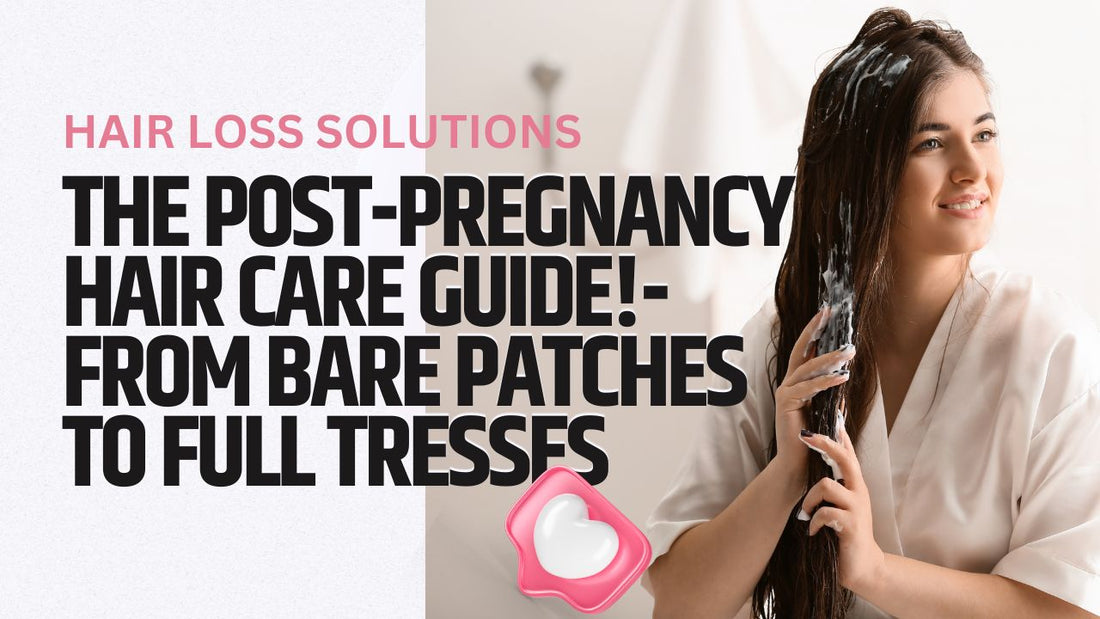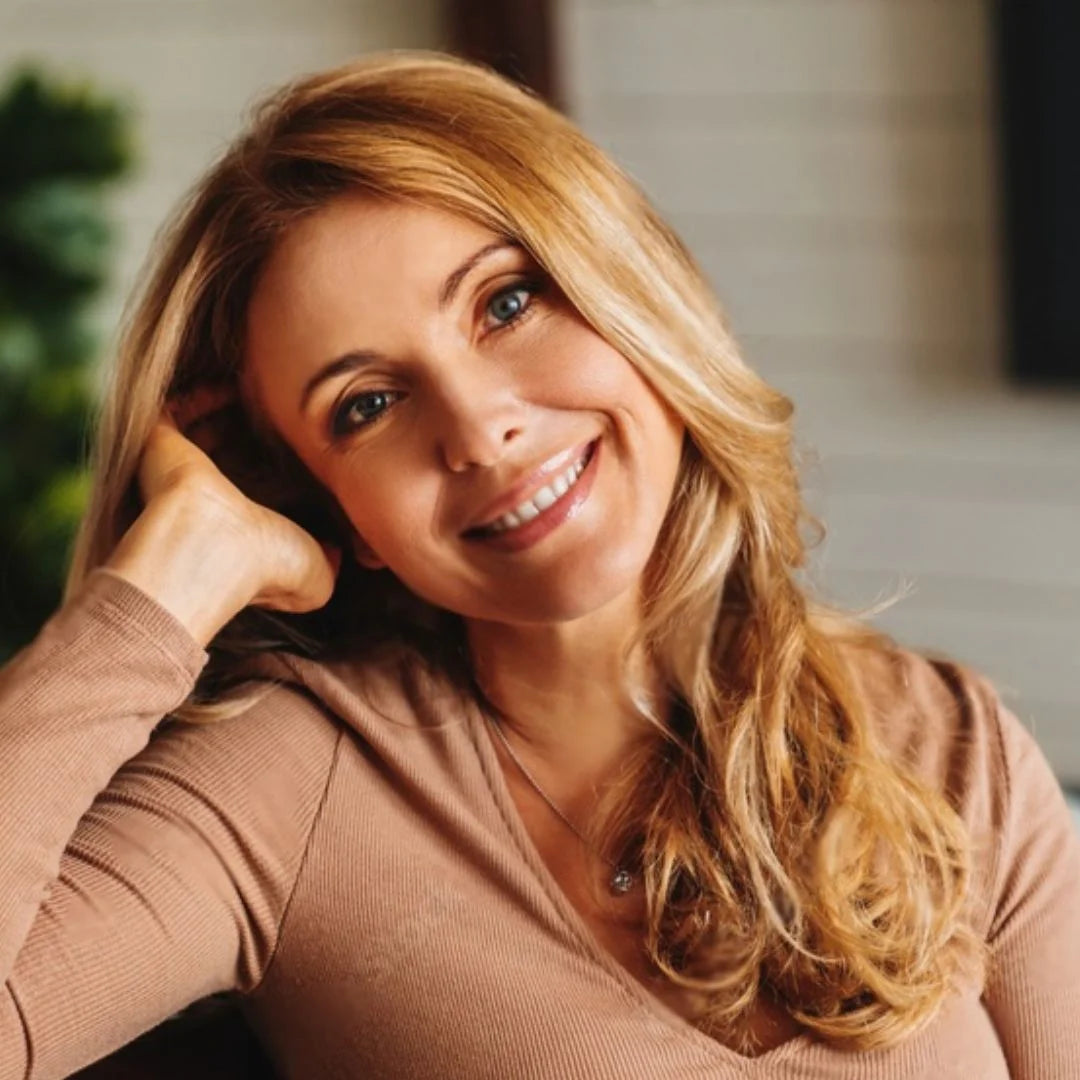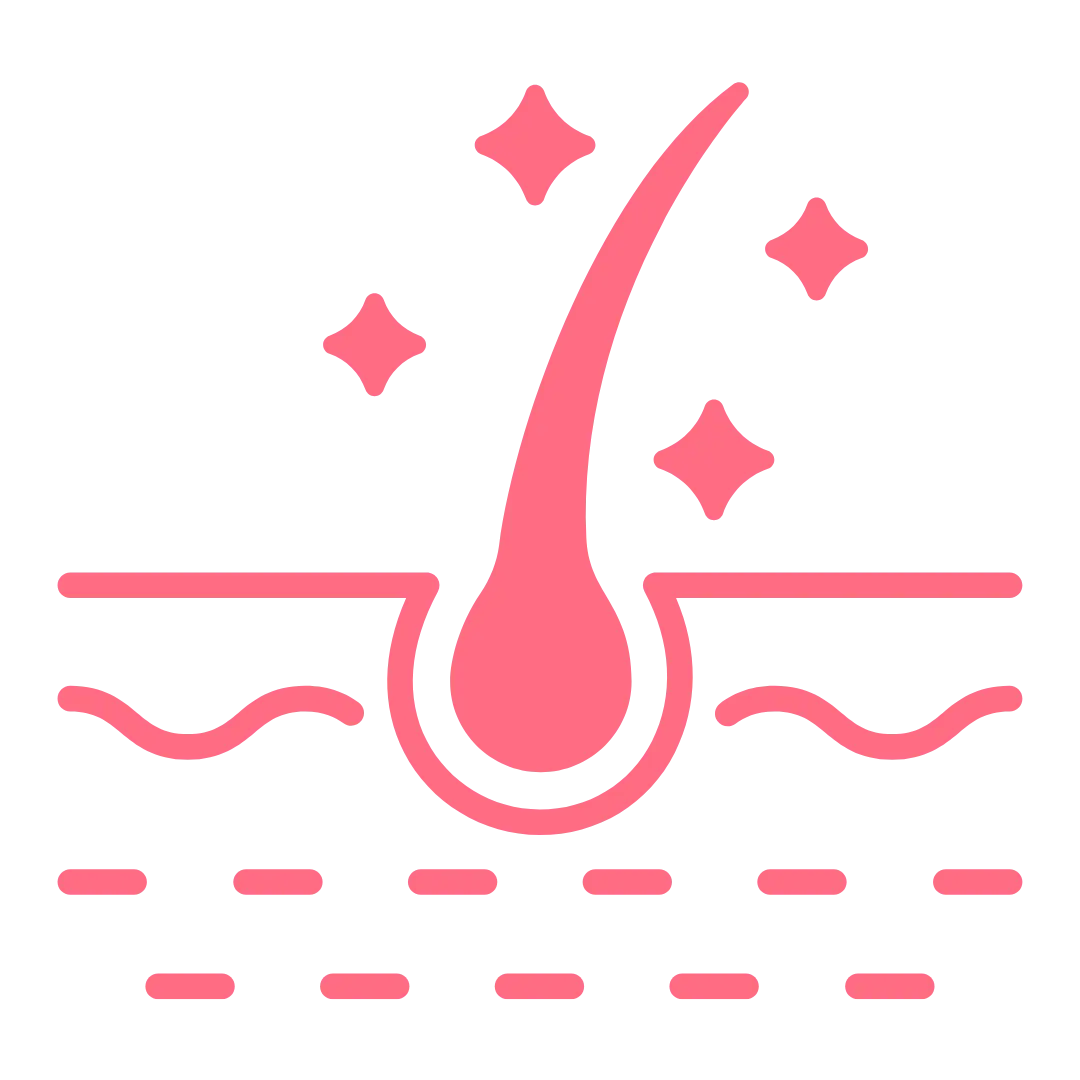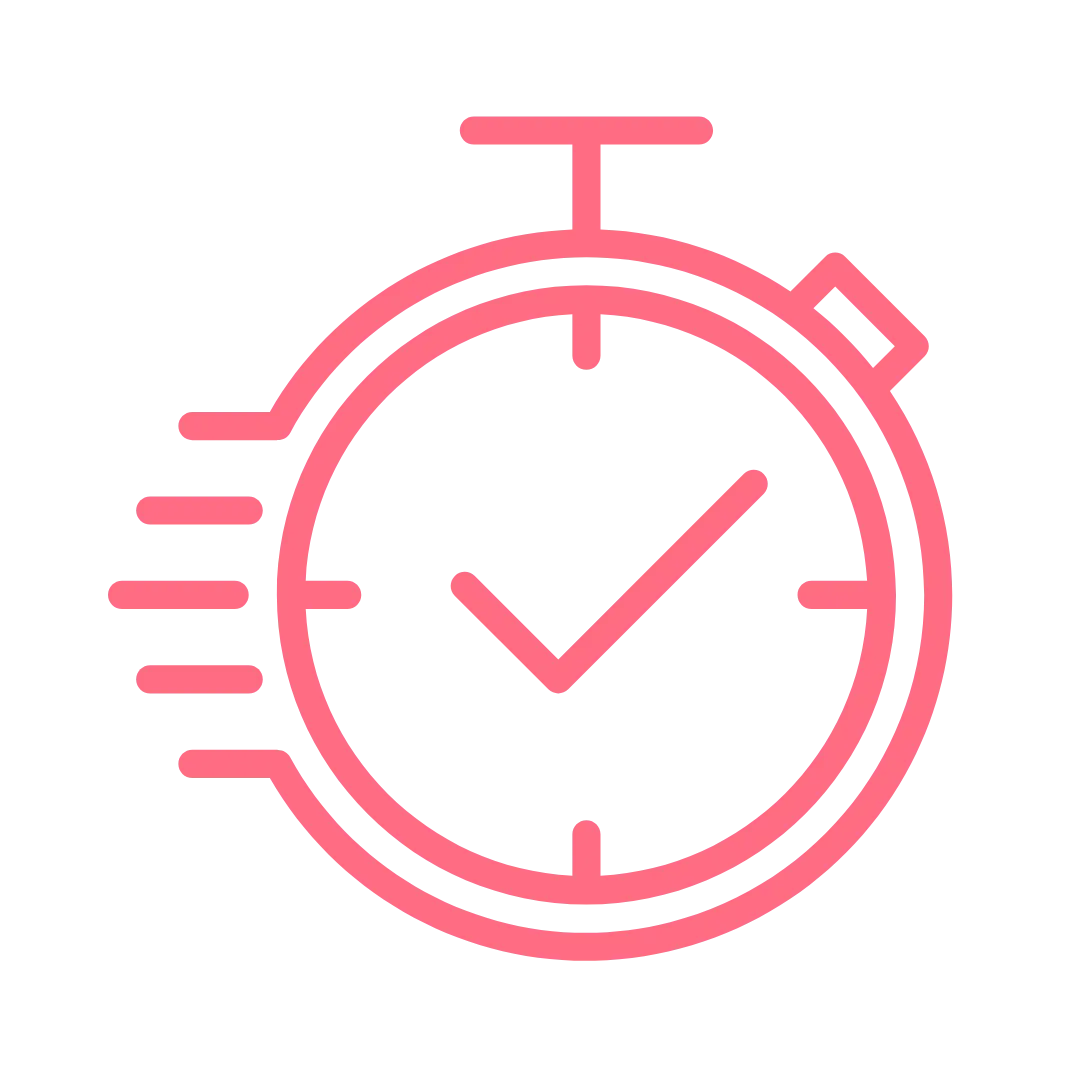
The Post-Pregnancy Hair Care Guide!- From Bare Patches to Full Tresses
Share
Pregnancy is a whirlwind of emotions and experiences, from the first flutters of baby kicks to the challenges of the third trimester. Alongside these joys and challenges, many women notice significant changes in their hair. As you transition from pregnancy to motherhood, understanding these changes and how to care for your hair is paramount. This guide delves into the intricacies of post-pregnancy hair loss, offering insights and solutions to guide you back to luscious locks.

Understanding Post-Pregnancy Hair Changes
Why Does Hair Loss Occur After Pregnancy?
The journey of pregnancy is both beautiful and complex. Your body goes through profound transformations, and these changes don't stop once you've given birth. One of the most common concerns among new mothers is hair loss.
Hormonal Changes: Pregnancy brings about a surge of hormones. Particularly, elevated levels of estrogen during pregnancy result in a prolonged growth phase for hair, leading to thicker, shinier locks. However, after childbirth, these hormone levels recede, causing the hair to enter the shedding phase. This means that the hair that didn't fall out during pregnancy now begins to shed, often quite rapidly.

Stress and Physical Changes: The physical toll of childbirth combined with sleepless nights can stress the body, further exacerbating hair loss. Stress releases cortisol, a hormone known to impact the hair growth cycle.
Nutritional Deficiencies: During pregnancy, the growing fetus might take up a lion's share of the nutrients, especially if the mother's diet isn't up to par. Post-pregnancy, these deficiencies can manifest as hair loss. It's crucial for new mothers to nourish their bodies to replenish lost nutrients.

Difference between Normal Shedding and Post-Pregnancy Hair Loss
Shedding hair is a natural process. On average, a person loses 50 to 100 hairs a day. However, post-pregnancy hair loss can feel much more drastic.

Daily Hair Shedding Explained: Hair follows a growth cycle with three phases – the anagen (growth) phase, the catagen (transition) phase, and the telogen (resting) phase. It's during the telogen phase that hair sheds. Normally, 5-10% of your hair is in this phase.
Recognizing Excessive Hair Loss: Post-pregnancy, an increased percentage of hair enters the telogen phase, leading to more pronounced shedding. If you're losing clumps of hair or notice significant thinning, it's likely due to post-pregnancy changes rather than everyday shedding.
Natural Ways to Boost Hair Health
Dietary Changes
What you consume plays an instrumental role in hair health. For hair to thrive, it requires a cocktail of vitamins, minerals, and proteins.

Importance of Proteins, Vitamins, and Minerals: Hair is primarily made of protein. Thus, a protein-rich diet can fortify hair strands. Additionally, vitamins like B12, iron, and biotin support hair growth, preventing breakage and promoting shine.
Foods to Focus On: Incorporate foods like eggs, spinach, citrus fruits, and nuts into your diet. These not only bolster hair health but also replenish nutrients that might have been depleted during pregnancy.
Optimal Hair Care Practices
Choosing the Right Hair Products
The market is saturated with hair care products, but post-pregnancy, your hair needs extra care and attention. The right products can make a world of difference.
Gentle Shampoos: Harsh chemicals can strip hair of its natural oils, making it dry and brittle. Opt for sulfate-free shampoos that gently cleanse without causing harm.
Deep Conditioning: The frequent shedding can leave hair dry and prone to breakage. Regular deep conditioning sessions can restore moisture and elasticity.
Effective Post-Pregnancy Hair Care Techniques
It's not just about the products you use, but how you use them.
Avoiding Heat: Limit the use of heat styling tools. If necessary, use them on a low setting and always apply a heat protectant.
Massage Your Scalp: Regular scalp massages stimulate blood flow, promoting hair growth. Using oils like coconut or almond oil can further nourish the scalp.
Proactive Rosemary Hair Booster Oil
The Magic of Rosemary Oil
Rosemary oil has long been hailed as a solution for hair concerns. Rich in antioxidants, it strengthens the roots, stimulates growth, and combats dandruff.
Direct Application: For a quick boost, apply a few drops of Proactive Rosemary Hair Booster Oil directly to your scalp. Gently massage in circular motions, allowing the oil to penetrate the roots. Leave it on for about 30 minutes before washing.
Mixing with Shampoo: To seamlessly incorporate Proactive Rosemary Hair Booster Oil into your routine, add a few drops to your regular shampoo. This way, each wash nourishes your hair, gradually improving its health and texture.
Personal Testimonies: Real Stories from Real Moms
Hearing from others who've walked the same path can be both comforting and informative.
Samantha's Journey: "After my second child, the hair loss was devastating. I felt like I was losing a part of myself. However, with consistent care, dietary changes, and the magic touch of rosemary oil, my hair is now thicker than ever."
Jessica's Experience: "The clumps of hair in the shower drain were heart-wrenching. I felt desperate. But with research and dedication, I've managed to regrow my once luscious locks. The journey taught me patience and the importance of self-care."
Dietary Influence on Hair Health
Eating Right for Luxurious Locks
Your diet plays a pivotal role in hair health. Consuming the right nutrients can speed up the recovery of post-pregnancy hair.

- Proteins: Hair is primarily composed of a protein called keratin. Including protein-rich foods such as eggs, lentils, and lean meats can strengthen hair strands.
- Omega-3 Fatty Acids: These essential fats, found in foods like salmon, walnuts, and flaxseeds, nourish the hair and support its growth.
- Vitamins and Minerals: Vitamins such as biotin, folic acid, and vitamin E are crucial for hair growth. Iron, zinc, and selenium also play a role in maintaining hair health.
Lifestyle Adjustments for Healthier Hair
Post-pregnancy life is undoubtedly hectic, but incorporating minor changes can lead to significant results.
- Stress Management: Chronic stress can exacerbate hair loss. Practicing relaxation techniques, such as meditation or deep-breathing exercises, can alleviate stress.
- Regular Exercise: Physical activity increases blood flow to the scalp, promoting hair growth. Even a brisk walk can make a difference!
- Limit Tight Hairstyles: Hairstyles that pull at the scalp, like tight ponytails or braids, can cause hair breakage. Opt for looser styles to prevent additional strain.

Concluding Thoughts: Embracing the Journey to Luscious Locks
Navigating through Post-Pregnancy Hair care after childbirth can be daunting, but armed with the right knowledge, your journey becomes smoother. Trust in Post-Pregnancy Hair care solutions and remember that this phase is temporary. Stay committed, and soon, those lush, vibrant locks will be yours to showcase once more.
FAQs
How long does post-pregnancy hair loss typically last?
Most women notice shedding starting a few months after giving birth and it generally peaks around the 4-month mark. However, by their child's first birthday or even earlier, most women see a return to their usual hair growth/shedding cycle.
Is it safe to use hair treatments or dyes during this period?
It's best to consult with a hair care professional. Generally, waiting a few months postpartum allows your hair to regain strength and reduces potential damage.
How often should I use Proactive Rosemary Hair Booster Oil?
For optimal results, it's recommended to use the oil 2-3 times a week, either mixed with your shampoo or applied directly.
Can I prevent post-pregnancy hair loss?
While it's a natural process, maintaining a balanced diet, managing stress, and proper hair care can mitigate the severity of hair loss.
When should I consult a doctor about my hair loss?
If you notice excessive shedding long after childbirth or if there are other accompanying symptoms, it's essential to seek medical advice.
This article provides a comprehensive guide to managing post-pregnancy hair loss, offering insights, solutions, and hope for women navigating this challenging phase. With care, patience, and the right resources, every mother can transition from bare patches to full, radiant tresses.


















